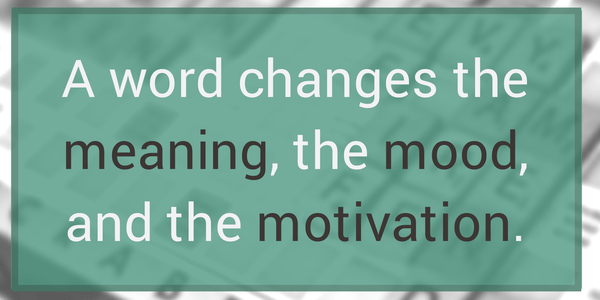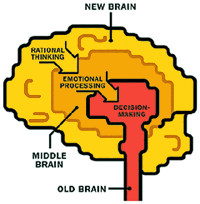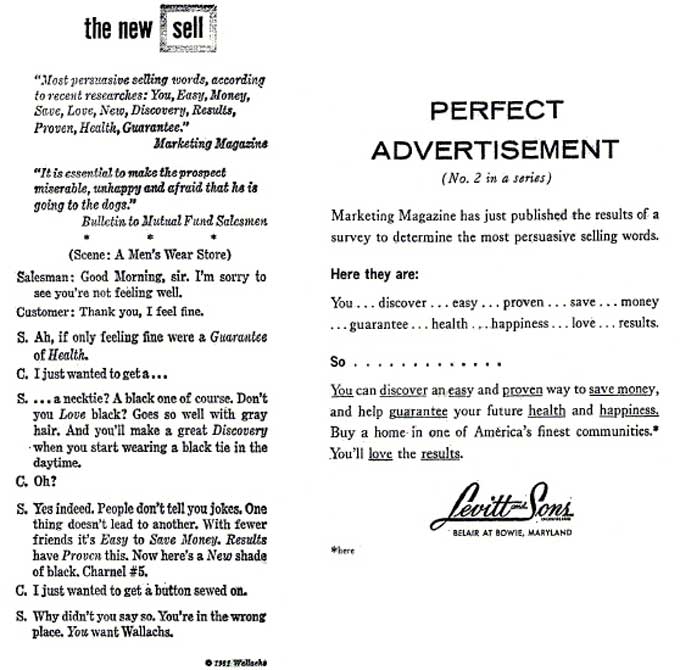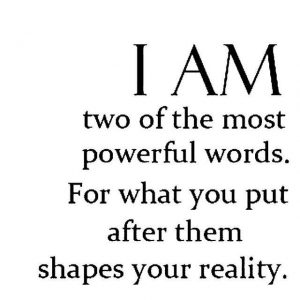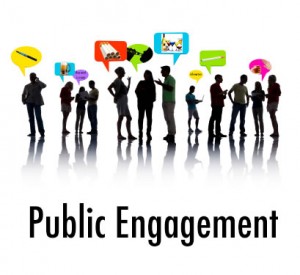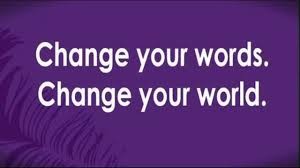“Join us!”
“Sign up!”
These phrases litter the huge variety of email newsletter boxes you’ll come across online, and they generally serve the same purpose: Click here to give us your email address. They serve the same purpose, but do they say the same thing?
Can one word change the way you feel about a button?
In my experience, yes. I subscribe to the copywriting school of thought where every single word is absolutely worth stewing over and A/B testing because one single word can change everything. The difference between “joining” and “signing up” is the difference between fellowship and enlisting. A word changes the meaning, the mood, and the motivation.
To connect the dots then, you’re probably wondering: If a single word makes that much difference, then what words should I be using? Which words and phrases convert?
The science of copywriting, the psychology of headlines, and the art of CTAs has revealed quite a number of go-to moves for marketers looking to gain a linguistic edge in their words and pitches.
I’ve enjoyed saving several lists of these so-called power words and pulling them out to use in a pinch. I’m happy to share my lists with you of the phrases and words that convert. Do you have any power words that work magic for you? I’d love to hear about them in the comments.
Research reveals how a single word makes all the difference
You likely know inherently that specific words matter. You click on a headline because a single word strikes you. You click a signup button because a word creates an emotion.
The research behind this power of words is incredibly deep. Researchers have found that the word you use to describe a car accident (“contacted” vs. “smashed”) paints the way eyewitnesses view the event. Another study found that simple stock names that are easier to pronounce lead to quicker gains post-IPO.
Perhaps my favorite study is one shared by Brian Clark of Copyblogger. Social psychologist Ellen Langer tested the power of a single word in an experiment where she asked to cut in line at a copy machine. She tried three different ways of asking:
“Excuse me, I have five pages. May I use the Xerox machine?” – 60% said OK
“Excuse me, I have five pages. May I use the Xerox machine because I’m in a rush?” – 94% said OK
“Excuse me, I have five pages. May I use the Xerox machine because I have to make some copies?” – 93% said OK
I don’t know about you, but I thought Langer’s third request was rather elementary. Yet it didn’t matter. The trigger word “because” was all she needed. The takeaway: When you want people to take action, always give a reason.
Neurologically, we have an instinctual reaction to words and language. Researchers have found that we are hardwired to associate sounds with images, even in words we do not comprehend. Here’s a test for you, pulled from a study by
Wolfgang Köhler. Which of the two shapes below is a maluma and which is a takete?
The vast majority of respondents label the smooth, rounded image a maluma and the hard, jagged image a takete.
To go one step further into the power of words, you can look at Patrick Renvoise and Christopher Morin’s book about neuromarketing (see Peep Laja’s article at ConversionXL for a great analysis of the book). Renvoise and Morin highlight the three different brains we have: the new brain, the middle brain, and the old brain.
The old brain is the part that controls decisions, and it also happens to be the most primitive. In this way, the words you use to market to the old brain will often be the most direct, simple, arresting, visual words you have.
You’ll likely see a lot of these “old brain” words in the lists below.
The ultimate list of words and phrases that convert
A quick Google search can reveal pages of results for persuasive and powerful words. There’s no trouble finding them; there’s sometimes trouble applying them. The words you see below are split into a number of categories, along with some ideas on how I’ve used them in the past (and how you can use them, too).
The 5 most persuasive words in the English language
- You
- Free
- Because
- Instantly
- New
You’ve seen these words countless times before—and for good reason. The research behind these words has shown over and over that they work. Gregory Ciotti wrote about these five in a post for Copyblogger, showing exactly how each is vital for persuasive speech and copy. For instance, immediate words like “instantly” trigger mid-brain activity and feed our zest for quick gratification.
Where to try these words: Calls-to-action, headlines, email subject lines, headings, opening sentences and paragraphs
The 20 most influential words, via David Ogilvy
- Suddenly
- Now
- Announcing
- Introducing
- Improvement
- Amazing
- Sensational
- Remarkable
- Revolutionary
- Startling
- Miracle
- Magic
- Offer
- Quick
- Easy
- Wanted
- Challenge
- Compare
- Bargain
- Hurry
David Ogilvy is to advertising as Jimi Hendrix is to the electric guitar. His list of influential words you see above was first published in 1963, and many remain in vogue today.
Where to try these: Headlines, bullet points, subject lines
(Sidenote: For a fun blast from the past, courtesy of Ben Locker, here are a couple advertisements for power words that date back to 1961. A New York Times ad is on the left, a Washington Post ad is on the right. Ogilvy’s 20 influential words came out two years after these.)
- Join
- Become a member
- Come along
These community phrases provide a sense of togetherness to the user; they feel like they’re taking part in something larger than themselves. (You’ll notice that we use the word “join” in our email newsletter form.)
Where to try these words: Email signups, trial offers, in-app messaging
10 cause-and-effect words and phrases
- Accordingly
- As a result
- Because
- Caused by
- Consequently
- Due to
- For this reason
- Since
- Therefore
- Thus
Author Darlene Price, the originator of this cause-and-effect list, has great insight into what makes these cause-and-effect phrases so useful: “
Cause-and-effect words make your claims sound objective and rational rather than biased and subjective.”
Where to try these: Closing paragraphs, transitions
12 phrases that imply exclusivity
- Members only
- Login required
- Class full
- Membership now closed
- Ask for an invitation
- Apply to be one of our beta testers
- Exclusive offers
- Become an insider
- Be one of the few
- Get it before everybody else
- Be the first to hear about it
- Only available to subscribers
Garrett Moon of CoSchedule explains exclusivity as being like a club with membership restrictions. You want in because others are in. There’s a bit of social pressure with exclusivity wording, and it helps drive decisions and actions for the user.
Where to try these: Signup forms, links, calls-to-action, subheads
9 phrases that imply scarcity
- Limited offer
- Supplies running out
- Get them while they last
- Sale ends soon
- Today only
- Only 10 available
- Only 3 left
- Only available here
- Double the offer in the next hour only
The fear of missing out (often abbreviated as FOMO) is a common driver of action for marketers and advertisers. FOMO is essentially scarcity. By showing that an item or product is in limited supply, you hope to ratchet up demand.
Where to try these: Headings, promo copy
28 words and phrases that make you feel safe
- Anonymous
- Authentic
- Backed
- Best-selling
- Cancel Anytime
- Certified
- Endorsed
- Guaranteed
- Ironclad
- Lifetime
- Moneyback
- No Obligation
- No Questions Asked
- No Risk
- No Strings Attached
- Official
- Privacy
- Protected
- Proven
- Recession-proof
- Refund
- Research
- Results
- Secure
- Tested
- Try before You Buy
- Verify
- Unconditional
Boost Blog Traffic’s Jon Morrow collected a huge list of power words (his full list of 317 is well worth the read) and sorted the list by category. The above section is Morrow’s grouping of words that engender feelings of safety. It’s my favorite group from Morrow’s list because these safety words have an amazing effect on the person reading: They create trust.
Where to try these: Payment forms, signup forms, testimonials
47 ubiquitous power words
- Improve
- Trust
- Immediately
- Discover
- Profit
- Learn
- Know
- Understand
- Powerful
- Best
- Win
- Hot Special
- More
- Bonus
- Exclusive
- Extra
- You
- Free
- Health
- Guarantee
- New
- Proven
- Safety
- Money
- Now
- Today
- Results
- Protect
- Help
- Easy
- Amazing
- Latest
- Extraordinary
- How to
- Worst
- Ultimate
- Hot
- First
- Big
- Anniversary
- Premiere
- Basic
- Complete
- Save
- Plus!
- Create
Each employee on the circulation and email marketing teams at Interweave Press has these words printed and posted on their wall. The list, which was originally compiled Linda Ruth and Curtis Circulation Company, came from studying best-selling magazine covers, and Interweave’s Bob Kaslik found that the words work equally well on magazines as they do in promo copy and in email subject lines.
Where to try these: Email subject lines, headlines, calls-to-action
9 word for shareable content
- Secret
- Tell us
- Inspires
- Take
- Help
- Promote
- Increase
- Create
- Discover
Neil Patel put together the infographic you see below, based on research on each of the four major social networks: Twitter, Facebook, Google+, and LinkedIn. His list represents the words that can get your content shared on social media. I’ve found success grouping some of these words with other power words as well.
Where to try these: Social media updates
If you’re looking for inspiration (and a few unique power words to keep in your toolbox), try keeping track of the words that get you to convert. Take note of the words and phrases that grab your attention. Keep in mind why a headline stands out more than another. Notice which words grab you in a bullet list of benefits.
As you find new words, you can build a list in Evernote or another note-taking app; then be sure to reference them when you’re in a pinch and looking for a powerful addition to your headline, copy, or post.
And once you’ve found the power words that help you convert, we’d love to help you share them to your social profiles at exactly the right times.
Do you have any favorite power words that have worked for you? Which ones from the list here might you be interested to try? I’d love to hear your thoughts.
Image credits: CarbonNYC, Ben Locker, Conversion XL,
Did you find this article helpful? You might also like our all-you-need social media toolkit.
Get started for free now
‘In the beginning was the Word, and the Word was with God, and the Word was God.’
We could all learn something from this well-known Bible verse. Looking beyond the religious overtones, there is a message to be found in this for everyone. Everything begins with a word.
Words consist of vibration and sound. It is these vibrations that create the very reality that surrounds us. Words are the creator; the creator of our universe, our lives, our reality. Without words, a thought can never become a reality. This is something that we have been taught throughout history, as far back as the Bible, which writes of ‘God’ – whatever that word may mean to you – saying ‘let there be light’ and as a result creating light.
So what can we learn from this? If our words and thoughts are the very tools with which we create our reality, then surely they are our most powerful tool yet? Surely we should only pick the very best words in order to create our very best reality?
The Power Of Words And Affirmations
Our thoughts also impact what we manifest in our lives. But it can be argued that the real power lies in our words. It is our words that provide a bold affirmation of our innermost thoughts. They are a confirmation to the world of how we see others, our lives and ourselves. It is this powerful affirmation that our words provide which enables our thoughts to manifest into a reality. So why do we choose to misuse our most powerful asset?
3 Ways To Use Words
1. Choosing Your Words Wisely
As a society, we have become conditioned to talk about our misfortunes and problems. We take our interpretations of events, people and ourselves and communicate them to the world, bringing them into existence.
So by that admission, when we moan or complain about our lives to others, we are putting those negative words out there to become a reality. When you say something out loud enough times your words become the truth not only in your own mind but in the minds of everyone you are saying them too.
If this is really so, then ask yourself – do you really want to tell yourself and everybody that you know that you are unlucky in love, unsuccessful, miserable, bored or whatever else you have been complaining about? Especially now that you know that it is these exact words that are creating the life that you live?
Begin to choose the words that you speak consciously. Practice improved self-awareness over the words that you use to describe yourself and your life. Negative, powerless words such as ‘can’t’, ‘shouldn’t’, ‘need’, ‘won’t’ should all be avoided. They strip you of your ability to manifest a life that you want to live.
As the creator of your universe, what you say goes. Therefore, next time you catch yourself about to use negative words, regain control and frame your word choices so that they have a much more positive impact on your world.
For example, if you would usually say something such as ‘I am unhealthy and overweight’ then why not turn this into a more positive, constructive statement such as ‘I am in the process of becoming healthier and every day I get closer and closer to my ideal weight’.
Your words are the paint with which you paint your reality. Choose those words wisely and positively to create a reality that is good for you.
2. ‘I Am What I Am’
Affirm who you are, your dreams, your hopes and your successes with two of the most powerful words that a person can ever utter – ‘I am’.
These two small but incredibly powerful words should be considered the most precious words that you have in your entire vocabulary. How we end the sentence ‘I am…’ defines who we are to ourselves and to everybody around us. So, when you say ‘I am…fat/lazy/shy’ or ‘I am…beautiful/confident/successful/happy’ this is the exact truth that you are creating for yourself. It doesn’t even matter if there is any truth in the words that you are saying, how you finish those two little words is how you define your reality.
So why not choose a higher expression for yourself? Remind yourself of what you are and what you wish to be by starting each morning with a positive affirmation beginning with those magical words ‘I Am’.
3. Speak From The Heart
When we complain about our lot in life, speak anxiously or use hateful words, we usually do so from a place of fear. So, the first step that you need to take in order to conquer this is to practice better self-awareness over the words that you are using.
Next time you open your mouth to complain or put yourself or others down, ask yourself:
- ‘Why am I about to say this?’
- ‘How is this going to serve me or my happiness?’
Ask yourself these two important questions and you will no doubt discover that you are in fact speaking out of fear. This is the fear that you are not good enough, fear that you are in the wrong relationship, the wrong career etc. Most importantly of all, you will realize that by voicing these fears you will be doing nothing for your happiness. Your words can only make you feel worse, manifesting these fears into your life with greater intensity.
So choose your words bravely, consciously and lovingly. Always speak from a place of love; for yourself, for your life and for others. Your words equal your world, so use them wisely.
Learn More About The Power Of Words
If this has made you reconsider your thought patterns and the way you use words, you probably are interested in how affirmations can play a part in your manifestation journey.
Get your FREE Law Of Attraction toolkit which contains a detailed guide to affirmation. It includes affirmation lists AND lots more of manifestation tools.
Click here to download your free copy of our toolkit now!
Mind & Meaning
The simplest tool for immediately transforming the quality of your life
“Language shapes our behavior and each word we use is imbued with multitudes of personal meaning. The right words spoken in the right way can bring us love, money and respect, while the wrong words—or even the right words spoken in the wrong way – can lead a country to war. We must carefully orchestrate our speech if we want to achieve our goals and bring our dreams to fruition. — Dr. Andrew Newberg, Words Can Change Your Brain”
The world’s greatest leaders and progressive thinkers have always used the power of words to transform our emotions to help inspire others toward their vision and create actionable change. From Winston Churchill’s focus on the “finest hour” to Martin Luther King, Jr.’s depiction of a “dream,” it’s evident that words shape our entire existence.
But what about our own ability to use words internally to change our lives for the better – words that will ignite change, inspire action and improve our quality of life? Can you change your words, and change your life?
Our words are a vehicle for expressing and sharing our experiences with others, but you may not realize the far-reaching impacts of the words you use on a daily basis. As I like to explain, “The words you attach to your experience become your experience. Language is one of the keys to shifting your mind, shifting your body and shifting your results.” If your internal self-talk is negative, chances are that your external experiences will be negative as well.
Over the past 40 years, I’ve had the privilege of working with more than 50 million people worldwide and I’ve witnessed the power that changing just one key word in a person’s vocabulary can have on the way a person feels – and how that person behaves.
By changing your habitual vocabulary – the words you consistently use to describe emotions – you can instantaneously change how you think, how you feel and how you live. When you change your words, you change your mindset. This works with the Organizational Change Management style as well.
How can words inspire change? Make your internal vocabulary more positive, and you’ll soon find out. The positive external experiences you’ll discover will amaze you. This is the power of transformational vocabulary – consciously using your words to improve and change your life.
Why is it difficult to change your words and change your mindset?
According to Compton’s Encyclopedia, the English language contains some 500,000 words. Yet, the average person’s working vocabulary consists of only 2,000 – 0.5% of the entire language. So how many words make up our habitual vocabulary? For most people, it averages around 200–300 words. (By contrast, John Milton’s writings used about 17,000 words and William Shakespeare used 24,000 words, 5,000 of which he only used one time.) Of those 500,000 words, about 3,000 are used to describe emotions – two-thirds of which are used to describe negative emotions.
With all of these readily-available ways to express our feelings and ideas, why are we comfortable with such an impoverished vocabulary? Our brains are working at high speeds, processing information and working to become more efficient. As a result, we resort to using the same vocabulary over and over again. In the pursuit of efficiency, we often create shortcuts that then shortchange us emotionally.
How to change your words
The human brain likes to take shortcuts. It conserves energy – and it also keeps us stuck in patterns that don’t always benefit us. The brain also likes certainty, one of our top human needs. Some certainty is beneficial, but too much of it prevents us from growing. To change your words – and change your life – you need to overcome both of these innate human tendencies and shift your way of thinking.
1. Understand the power of labeling
I first became aware of the power of labeling emotions during an intense negotiation, more than a decade and a half ago. I shared information with the other party, thinking it would help my business partners and me cut through the positioning and show good faith. Unfortunately, the other party leveraged that information in an attempt to close the deal in an unjust way.
To say it was upsetting at the time would be an understatement.
After the meeting, I was disappointed and angry, but the intensity of one of my partners baffled me. He was enraged and felt that the other party was “putting a gun to our head.” His face was beet red and he was out of control as I tried to calm him down. The intensity of his emotions struck me because it seemed over-the-top compared to my frustration. On the other hand, our other partner seemed completely unmoved by the experience.
When I asked him, “You don’t seem to be upset by this. Aren’t you angry?” He said, “Well, no, not really. I’m a little annoyed by this.” I was incredulous. “Annoyed?” I asked, “Don’t you realize what these people have done?” He said, “Of course I do. I’m certainly a bit peeved.” “Peeved?” I echoed. “What do you mean, peeved?” To which he responded, “Well, it’s really just not worth being upset over and that’s how I feel.”
I was struck by how each of us used words with such varied levels of intensity, and also how the meaning we gave to our experiences of the event were so radically different. How could it be that I was frustrated, one of my partners was enraged and my other partner was a bit peeved?
I pondered the word, “peeved.” What a ridiculous word to describe what these people had done to us. I would never use this word to describe how I was feeling, but then again, I had never been that calm in an unjust situation. I began to wonder, what if I stayed calm and labeled this injustice as “peeving me?” Just to use the word would probably make me laugh. Maybe he was on to something. Maybe my partner had already discovered that when you change your words, you change your life.
2. Identify your self-talk
For more than two decades, I’ve been testing live audiences all around the world, asking them to take on this task: Make a list of the emotions you feel at least once a week.
Go ahead. Take ten minutes and write down all the emotions you feel at least once a week (not emotions you feel once a month or year). What did you come up with?
Astonishingly, whether the audience consists of 2,000 or 30,000 people, 90% of the people write down an average of a dozen words – more than half of which represent negative feelings. That means that out of the 3,000 words we have for emotions, most people list less than six words to describe good feelings. But the words for their bad feelings are more readily available, stored and remembered.
Have you ever taken the time to think about which words you habitually use and how they affect your life and well-being? Negative self-talk and negative emotional labeling stem from your limiting beliefs and affect all of your emotions – which in turn affect your decisions, behaviors and experiences of life.
Let’s look at this phenomenon in another light. What if a person was asked the same question and listed 30 positive emotions? How happy and fulfilled do you think that person is in life?
The problem is that our default setting isn’t to consciously choose our words to describe our emotions. When we experience distressing emotions, we unconsciously fall back on our habitual vocabulary. The words we attach to our experience become our experience. Words have a biochemical effect on the body. The minute you use a word like “devastated,” you’re going to produce a very different biochemical effect than if you say, “I’m a bit disappointed.”
It’s not hard to see the impact of language when we look at how we feel when other people speak to us. For example, if someone said to you, “I think you’re mistaken,” versus, “I think you’re wrong,” versus, “You’re lying,” would you have a different biochemical response to that phrase? The same exact process happens with the words you use to speak to yourself. When you learn to change your words, change your mindset and change your life, it’s because you’re changing these inherent responses.
3. Challenge yourself to change your words, change your life
Is it possible that the words we attach to our experience actually become our experience? Do words have a biochemical effect? Let’s go back to the business meeting that left my partner “peeved.” For the next few weeks after that meeting, I began to notice the different language patterns of others and how they magnified or softened their emotions. Can a change in words lead to a change in state?
It was time to test this theory. I created a 10-day challenge for myself. First, I would have to identify my emotional habits. Then, I would consciously replace these with a new word to break my default pattern of thought and feeling.
I got my first opportunity after a long series of connecting flights, all of which were late. I arrived at my hotel at two a.m., knowing I had to be up to speak at eight a.m. I waited another 10 minutes at the front desk while the clerk slowly searched for my name in the computer. The frustration compounded until it turned to anger. Suddenly, I turned to the man and said, “I know this isn’t your fault, but right now I’m exhausted and I really need to get any room you can find for me because I’m feeling a little bit peeved.”
Just saying that word changed the tone of my voice and made the whole situation seem silly. The clerk looked at me in confusion before breaking into a big smile. I smiled back; my pattern was broken. As ridiculous as it sounds, the replacement word broke my pattern of anger. The emotional volcano building inside of me instantly cooled. So how can words inspire change? It starts with a change inside of you.
4. Shift your emotional patterns over the long-term
Could it really be this easy? Just by changing the words we habitually use to describe our emotions, could we change our feelings and the quality of our lives? Ten days turned into a month and I can tell you, beyond a shadow of a doubt, it was a life-transforming experience.
This is not to say there won’t be times when you feel angry or enraged, but wouldn’t it be nice to have that be a conscious choice as opposed to a habitual negative reaction? We can be proactive in choosing our emotions – we can make experiences more pleasurable.
If you’re wondering how to change your words and change your life in the easiest way possible, start with one word. Replace one word that will transform the way you experience something “negative.” Shifting your mindset is the key to shaping your decisions, actions and life. This is how you create a choice instead of a habitual reaction.
Transformational vocabulary gives you the power to change your experiences in life by lowering the intensity of negative emotions to the point where they no longer control you. It can also be used to take positive experiences and increase them to even greater heights of pleasure.
How extraordinary will your life be when you consistently lower the intensity of negative emotions and intensify the positive ones? Start small. Note the negative words you use on a consistent basis and ask yourself how you can change them. Can you be “peeved” instead of “devastated?” On the other hand, can you feel “ecstatic” instead of “pleased?” When you change your words, you change your mindset. Start creating beneficial habits today, and you’ll quickly reach a more positive, joyful state.
Header image © Shutterstock/Antonio Guillem
We can use the power of words for good, or for bad. Words can create, or they can destroy. Once you learn the true power of your words you will consider what you are saying the next time you speak.
What does the power of the spoken word mean?
Words are created from vibrations. They are a thought that has come to life.
You can make someone sick, and feel bad, you can make them cry, or make them very happy and feel loved with the power of your words.
Most of us have heard the story about how several different coworkers went up to a guy, they work with, and told him he did not look so good.
Let’s call him Bob. Well, a little while later another coworker came up and asked if he was feeling ok. This went on for a couple of hours.
Soon Bob started to feel sick. Bob went to his boss and said he needed to go home. He was not feeling well.
Of course, there was nothing wrong with bob, it was the power of suggestion, the power of spoken words from people he trusted.
Before your words come out of your mouth the thought had to be in your head. You can really get an idea of what someone is thinking, and what they are attracting into their life, by the words they speak.
Everything we say either affects us or someone else. You can use this power for good or evil.
As the saying goes, with great power comes great responsibility, use your words wisely. Yes… words have great power.
There was a famous experiment done with water. Dr. Emoto proved that words have a vibration and will alter the structure of water crystals.
He proved that you can actually alter the molecular structure of water with the power of words.
You can Google the entire experiment but basically, he placed several vials of water and placed labels on the vials with negative words on them.
In the other half, he placed positive words. The words on the label were also spoken and repeated out loud. He then viewed the frozen water crystals under a microscope.
The ones with positive words were beautiful looking while the negative destructive words were very ugly, deformed water crystals. He also has a book called The Hidden Messages in Water, if you are interested.
So here is something to think about. The human body is 60% water, our lungs are 83% water, and the brain and heart are 73% water.
Since we are mostly water, it makes you think about what our words are doing to us? I hope you will think before you speak next time. Are we altering the water in our bodies or others?
We know we can influence other people with the things we say. Let’s say you are going to an event, you tell your friend you’re going to love this, we are going to have a great time.
The pictures that start forming in their mind is that of having a great time. You both do.
Of course, you can reverse this and be destructive by talking bad. You are on your way to meet someone and you say this guy’s an idiot, you are not going to like him, he’s got a bad attitude.
The person you just said that to already has formed an opinion about someone they never met. When they do meet, they’re more than likely going to seek out the negative in this person and say…yes you were right. Can’t stand him.
Think about all the times you say I’m an idiot why did I do that? I’ll never get this right, I’ll never meet the right man or woman. I just can’t get ahead, I can’t make enough money.
Now, if you took all that and reversed it things would begin to change for you. You would attract what you desire in your life. You need to change your thoughts and words if you want to create a better reality.
I hope after reading this article you will think before you speak negatively. Gossip, complaining and negative self-talk is very destructive. Words have energy.
Think about that group of friends that sit around and gossip about other people.
Ever walk into a room and just feel that people have been talking about you?
Words have energy. They vibrate through the air. We are made of vibrations.
Other people feel the same thing when you talk bad or negative about them. How about the group of friends that sit around and talk about how bad things are. How bad the economy is.
Corrupt politics, how we are ruining the world. There are no jobs out there, people are bad, and so on and so on.
Just remember, the way the law of attraction works is, that you attract more of what you think, feel, and talk about. Choose your words wisely.
Let’s talk about verbal abuse. The statistics on verbal abuse are staggering. I am not going to go into the subject too deeply, but your words can easily crush another person.
Many times it is worse than physical abuse. People that were abused when they were growing up carry the same behavior over into their adult life.
Many times two people that meet are attracted to each other because they came from a similar background, without knowing it.
One is the verbal abuser and the other one is so used to being abused they attract the abuser.
I’m sure we all know a friend that finally gets out of an abusive relationship only to find another one just like it, or worse. This is the law of attraction in action.
The Power of the phrase “I am” 
The words “I am” are very powerful. Perhaps the two most powerful words we know.
If you use affirmations starting with “I am” you can, and will, begin to completely change your life.
No matter where you are right now you can turn everything around 180° and create your life better than you ever dreamed it could be.
Get rid of negative words like I can’t, I shouldn’t do that, I need this, I’m not good enough, I don’t deserve that. Replace those with I am.
I am powerful, I am wealthy, I am creating my own world, I am in control, I am loved, I am healthy. Positive affirmations like these should be used every day. Start your morning with your own list of affirmations.
Words and the Law of Attraction
Words, thoughts, and feelings create our reality. look around you, everything you see was drawn to you by you. You attracted it all. Every bit of it.
You create your reality. The good, the bad, all of it it’s all because of you, like it or not. If you want things to change in your life it all begins with your thoughts and your words.
We live in a world filled with vibrations right down to the smallest particle. Everything in our world vibrates with energy. Words, sounds, and speech are just vibrations.
Everything you say goes out into the universe. You get back what you send out. Continually speaking negative words will attract more of the same.
Let’s say you constantly talk about sickness. You hang around with your group of friends and talk about some person that got some terrible disease. How bad they are doing. How terrible they look.
You start to worry about the same thing happening to you. Every time you are with your group of friends you ask how much worse this person is.
The more you talk about something the more you are likely to attract the same thing for you.
Many people attract diseases through their words and thoughts. If they knew how the law of attraction works they would not talk about such things.
The same principles apply to everything. If you worry about getting in a car accident, getting robbed, going broke, not being able to pay bills, whatever you worry about will attract more of the same to you.
Not to mention speaking like this will definitely make you feel bad. Why not turn it around and speak positive words about everything
What does the bible say about the power of words
We have learned about the power of words a long time ago. It is written clearly in the Bible.
I did some quick research and in a very short time found over 100 Verses in the Bible that speak about words. The power of the tongue, corrupt talk, rash words, etc.
Matthew 15:18 But what comes out of the mouth proceeds from the heart, and this defiles a person.
“Death and life are in the power of the tongue” (Prov. 18:21).
Next time you pray think about what you are saying. Are you creating? Is it going to bring you or someone else a better future? When you pray do you ask? Beg? Please bring me this… I really need this right now.
Instead, you should be giving thanks. Even if you do not currently have your desire, give thanks and know it is on its way.
I will talk about this more and another post but, through my studies and research on the law of attraction, I learned a great deal about the Bible and the words written in it.
I am not talking about the Bible most of us know. The one most of us know has been edited heavily. It is a condensed version from many other books. Some say 14 others will say 27 or more.
I have searched out and found many of these old books and went through them. The information that was left out is amazing.
Some of the most popular phrases in our modern Bible are condensed versions of much more detailed writings.
How to use the law of attraction is clearly spelled out. However, for some reason, most of that was left out of our edited version. Why?
What About Silent Words?
Subliminal messages are nothing more than positive affirmations that are recorded just below our normal hearing range.
They are still spoken words. Your conscious mind does not hear them but your subconscious mind definitely does.
The power of words has made us who we are. When we are born we are a blank slate. Our subconscious mind is empty.
We get programmed between birth and the age of 7 by our parents, teachers, and other surroundings.
The words they say to you get locked in your subconscious mind and you may go through your entire life believing something that probably isn’t true.
If your parents, even kiddingly constantly called you stupid or dumb or maybe they said you’re never going to grow up to be anything, then it probably became true.
This is how words have set us up for failure before we even had a chance.
The same self-defeating programs run in our subconscious minds day after day, 24 hours a day, keeping us down.
Since we run 95% of our day on our subconscious minds it is no wonder why it’s so hard to change anything in our life permanently. The power of words creates or destroys.
You can also use words for great good, especially in yourself.
Final Thoughts on The Power of Words
Considering how powerful words are I challenge you to go the next 30 days thinking about the words that come out of your mouth.
Every time, before you speak, think about what you are about to say. Is it negative, or is it positive? Is it going to help someone or is it a useless destructive comment?

We have been influenced by the media, our friends, and our surroundings to say whatever we want whenever we want. Freedom of speech….right?
I want you to also consider everything you say out loud about yourself. Think every time before you speak.
If you do this you will change everyone’s views about you. You will seem like a different person. In fact, you will be. People love a positive person.
You will automatically become someone that people are naturally drawn to. Our words matter. It may not seem like it, but everything we say out loud influences someone or something.
Before speaking take a few moments to consider what you are about to say.
Stop gossiping, stop complaining. Next time you’re around your group of friends pay attention to the way they are speaking it’s almost always negative. Turn the conversation around by saying nice positive things.
It takes a little practice and may seem odd at first if you are used to talking negatively most of the time. It’s actually funny when you do this in a group, watch what happens.
Most people get quiet and don’t know what to say, you throw them off of their game. Start talking about how nice and great someone is that they are bashing and they don’t know what to do.
Why do we misuse our words? In my opinion, most of us do not know the real power behind them. We do not know they create our future.
We use them haphazardly with no thought into anything we say. Talking about other people, swearing, talking bad about politics, the place you work at. All that is going to attract more of the same.
Complain enough about something around other people and you will start to influence them. Nothing good can come out of this. Eventually, you will attract what you’re complaining about.
This is how the law of attraction works. It is the language of the universe and the power of words.
Think of it like this. The source, the universal power, or whatever you want to call the higher power, hears you. It does not know any difference between good or bad it only delivers.
If you sit and complain and misuse your words it is going to say, okay this is what you want, no problem here is more of it. Glad I could help.
Ever meet a person and within a few minutes you know if you’re going to like them, or not. The words that come streaming out of their mouth will immediately influence your opinion about them.
When you meet someone that is happy, talks well of others have nothing but good things to say, you are automatically drawn to them.
The way that your life is currently going is a reflection of the words that you have been thinking and speaking.
All you have to do is look around you to know what you have been attracting. The same goes for another person. Look around them, you know what they have been thinking and speaking about.
Thinking about what we are about to speak is much easier than controlling our thoughts. If you control your speech for 30 days you will be absolutely amazed at the changes in your life. You will know the power of words is working in your everyday life.
Faqs –
What does the power of spoken word mean?
The power of spoken word can be quite profound. It can be used to inspire, motivate, and even heal. There is a reason why so many people turn to motivational speakers or life coaches when they need guidance; the right words said in the right way can make all the difference.
How do the power of words impact your life?
Words are incredibly powerful. They can make you feel a range of emotions, from happiness to sadness to anger. They can also influence your behavior. For example, if someone tells you that you’re not good enough, you might believe them and start acting accordingly. On the other hand, if someone tells you that you’re amazing, you might start to believe that, too.
What does a power word mean?
A power word is a word that has a special meaning or significance for you. It could be a word that motivates or inspires you or a word that represents an important aspect of your life. Power words can also be words that you simply enjoy saying and hearing.
The impact of power words on your life can be significant. Just by hearing or repeating a power word, you can instantly feel more positive and motivated. Power words can also help to focus your thoughts and intentions and can be used as a tool for manifesting your desires.
By Janice S. Ellis, PhD, Kansas City, MO —
The power of words to effect change is a great tool to improve the quality of our lives when used wisely. How do you see the state or quality of life within your immediate family, your neighborhood, community or city, your state, our nation? Do we see ourselves as islands or do we believe we all are interconnected to a lesser or greater degree?
Do we ever pause to ponder such questions amid the hustle and bustle and daily demands of family and work? Sadly, it is likely that most of us are so hurried and busy living that we do not pause to give a fleeting thought to the times of our lives, let along use the power of words to effect change. Instead, we often go along to get along.
Whether it is the state of the economy, the quality of education available, increased gun violence in our homes and on our city streets, or surprise terrorist attacks where we work, worship, or venues where we gather with friends and family – they are all issues that can be addressed using the power of words in meaningful dialogue.
The Power of Words to Effect Change
We must take time to read, listen, think, analyze and come together to act upon these issues and events, examining the potentially lasting impact on our lives, the lives of our children, our grandchildren, and their children. It all can be achieved with the power of words. The power of words to effect change.
The power of words to effect change in the human condition. Photo Credit: ukctas.net
We have all heard the sayings, “If you don’t know where you have been, how can you know where you are going?” We must look at today’s events, from yesterday’s and tomorrow’s perspective, and the more we observe, the more we will realize that broad and sweeping changes and conditions develop over time. Many are unnoticed until it is too late because we are not engaged.
The Power of Words to Effect Change
Decisions and policies, many of which are far-reaching and life-altering, are often talked about and acted upon long before we see the nature and kind of fruit they will bear – good or bad. More importantly, the lasting impact on the quality of our lives.
The fate of a society is much like raising children. What a child ultimately become is as a result of the kind of nurturing and experiences he or she encounters over time. That is not to ignore that natural events beyond anyone’s control can also lasting impact. But, such events will never excuse or justify our apathy, our silence, and our inaction.
Each of us needs to take time to find a quiet place on a frequent basis (at the end of a day, sitting or driving on a Sunday afternoon) and ponder the long-term implications of what is going on around us.
There are examples everywhere, in our communities, our cities, the nation, and on the world stage, where people use the power of words. History is loaded with examples of both heroes and ordinary people who cared enough to speak up and speak out. They understood the meaning of powerful voices.
The power of words is at your disposal. Use it. Photo Credit: yolandadeloach.com
The power of words is always available to us. Many have used the power of words to impact and improve the human condition and they knew that meaningful and lasting change would not come over night.
Now is a good time to ask what has changed significantly (for better or worse) over the last 10 years? 20 years? 30, 40, 50 years? How did those changes come about? Was it because of the power of words or was it because someone took advantage of our silence?
The real and overriding question is: What conditions are we willing to just accept, when the power of words could be used to bring about positive and meaningful change?
More importantly, are we willing to speak up and speak out? Never under estimate the power of words to effect change.
Feature Photo Credit: drthermanevans.com


